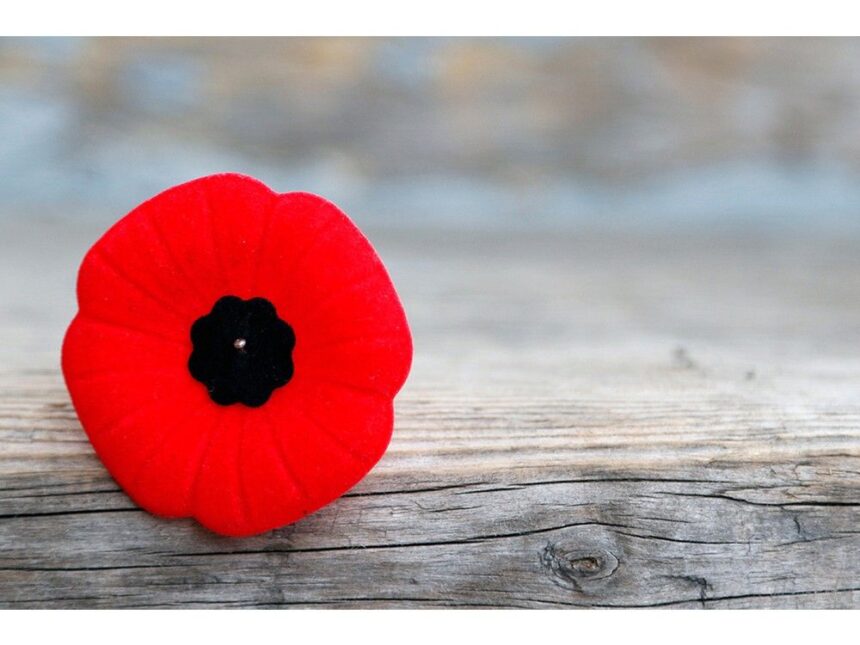Judges and staff don’t wear poppies in the courtroom to create an unbiased and neutral environment. Photo by Pascal Huot /Postmedia file photoArticle contentJudges don’t often speak out publicly, but something needed to be said.THIS CONTENT IS RESERVED FOR SUBSCRIBERS ONLY.Subscribe now to access this story and more:Unlimited access to the website and appExclusive access to premium content, newsletters and podcastsFull access to the e-Edition app, an electronic replica of the print edition that you can share, download and comment onEnjoy insights and behind-the-scenes analysis from our award-winning journalistsSupport local journalists and the next generation of journalistsSUBSCRIBE TO UNLOCK MORE ARTICLES.Subscribe or sign in to your account to continue your reading experience.Unlimited access to the website and appExclusive access to premium content, newsletters and podcastsFull access to the e-Edition app, an electronic replica of the print edition that you can share, download and comment onEnjoy insights and behind-the-scenes analysis from our award-winning journalistsSupport local journalists and the next generation of journalistsRegister to unlock more articles.Create an account or sign in to continue your reading experience.Access additional stories every monthShare your thoughts and join the conversation in our commenting communityGet email updates from your favourite authorsSign In or Create an AccountorArticle contentDeborah K. Smith, chief justice at the Supreme Court of Nova Scotia, and Perry F. Borden, chief judge at the Provincial Court of Nova Scotia issued a statement on Sunday explaining why judges and staff don’t wear poppies in courtrooms.Article contentArticle contentLast week, Premier Tim Houston blasted the practice.Article contentArticle content“This order was issued under the guise that the poppy is somehow a ‘political statement.’ This is disgusting,” he said in a post on Facebook late Thursday.Article contentSmith and Borden said on Sunday that the topic is very sensitive and one that deserves an explanation.Article content Deborah K. Smith, chief justice of the Supreme Court of Nova Scotia. Photo by Chronicle Herald file photoArticle content“We hope that there isn’t one of us who doesn’t remember the sacrifice that our veterans made to preserve our free and democratic society. The wearing of a poppy symbolizes our respect for those who have served, and those who did not return. Why, then, would a judge ask staff not to wear a poppy in the courtroom?”Article contentThey said it’s because judges have an obligation to conduct all court proceedings in an impartial and unbiased manner.Article content“There can be no signs of favouritism towards any of the litigants.”Article contentThe Nova Scotia Judiciary said judges and staff are expected not to wear any symbols of support in the courtroom, and it is up to individual presiding judges as to whether poppies may be worn.Article contentArticle contentIt’s fundamentally important that when someone walks into a courtroom, they feel that they’re in an unbiased and neutral space, Smith and Borden said.Article contentThey gave an example: “A non-veteran is charged with assaulting their partner, who is a highly respected veteran of the Canadian military. The accused’s trial is scheduled to commence tomorrow, just before Remembrance Day. The accused walks into the courtroom and sees the judge, the court clerk, and the sheriff all wearing a poppy. That individual will likely have some discomfort or doubt about the neutrality of the proceeding.”Article contentIt isn’t a sign of disrespect, Smith and Borden wrote.Article content“The decision of a judge not to allow symbols of support such as the poppy to be worn by court staff is not intended, in any way, to undermine or diminish the tremendous respect that we have for those who have served, and those who have died,” they explained. “It is to ensure that all Canadians know that they are entering an unbiased and neutral space when they enter a courtroom.”Article contentThe premier said in his post last week that he supports anyone who wants to wear a poppy in their own workplace and, if necessary, he will introduce the Nova Scotia Remembrance Observance Act to protect the right to wear a poppy from Nov. 1 through Nov. 11.Article content
There can be no signs of favouritism: Nova Scotia chief judges explain poppy ban











